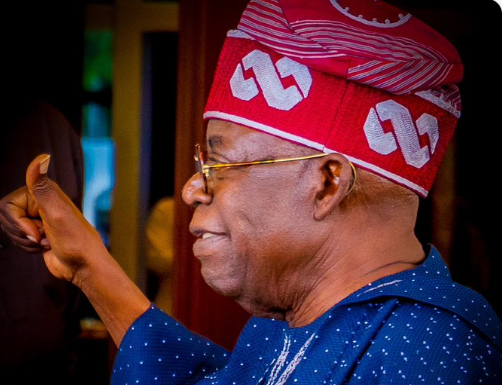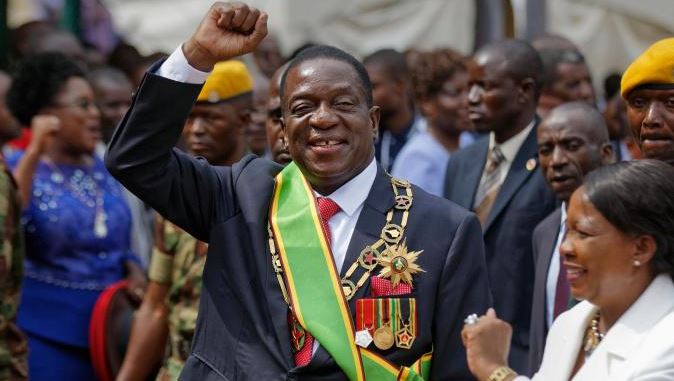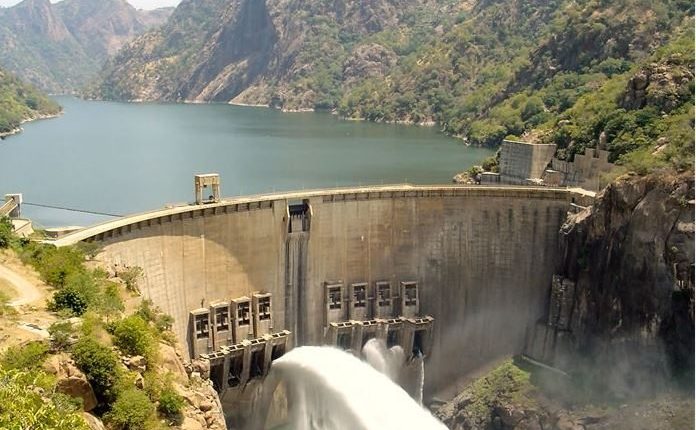If you consumed too much foreign media after the inauguration of President Bola Ahmed Tinubu on May 29, 2023, you would conclude that Nigeria was finally on its way to El Dorado. From day one, when Tinubu said “subsidy is gone”, there was euphoria among the advocates of market economy who had always argued that the subsidy bill was killing public finance. Approximately N3 trillion was yanked off government expenditure with his announcement. A few days later, the Central Bank of Nigeria (CBN) began the “unification” of the exchange rates. This got more people excited. It was not just about ending the perverse distortion of the forex market but also getting us back to reality.
The simultaneous removal of these two subsidies — the one on petrol and the other on forex — had been unthinkable all along. When Tinubu was declared winner of the 2023 presidential election and the opposition parties kicked, the thinking among advocates of economic reforms was that it would be near impossible for the new president to take certain decisions, particularly in the early days, because he would be trying to establish the legitimacy of his government. Since reforms are fundamentally political, or subject to political vagaries, no new president would want to start off on such an explosive note in the midst of a strong legal challenge to his victory. But Tinubu did.
What happened next? Petrol prices tripled and the cost of living went haywire. The naira went on a massive fall, threatening to hit a four-figure high against the dollar. You can argue that economic reforms cannot yield results within three months and that Nigerians need to be patient. True. Things could get worse before they get better. But that cannot be music to the ears of those who are daily struggling to feed and paying through the nose for transportation. The lamentation in town is how Tinubu’s policies have brought misery on millions of Nigerians. Even many who voted for him are expressing regrets. The poor are always disproportionately affected by adverse economic realities.
I have noted a series of false starts and missteps by the president. The first, which I raised after his haphazard announcement of the removal of petrol subsidy, was the way he communicated such an important message to Nigerians. I do not deceive myself that there is a neat way of announcing subsidy removal that will invoke a standing ovation. It doesn’t work like that. But I saw a president communicating such a monumental policy decision to millions of Nigerians without empathy and without strategy. Operators in the petroleum industry did not have any inkling of his overall plan and its timelines. Saying “subsidy is gone” on national TV looked like a spur-of-the-moment declaration.
Advertisement
The ensuing confusion was glaring. The subsidy budget President Muhammadu Buhari left behind was to cover up till June 30, 2023, but by saying “subsidy is gone” on May 29, Tinubu ensured there was instant commotion at the fuel stations. The Nigerian National Petroleum Company (NNPC) Ltd, the sole importer of the product, had to adjust pump prices immediately — from an average of N185 per litre to over N500. This was to prevent prolonged agony at the stations. Marketers would naturally have taken advantage to fleece motorists if NNPC had waited till June 30. This, to me, was a clear hint that Tinubu did not have a ground plan and was just being impulsive. That was a false start.
If you want to do away with subsidy, there are better ways of going about it. It is a sensitive policy. Critical segments of the society should have been carried along. Issues regarding the so-called palliatives should have been finalised. Yes, there is no nice way of removing subsidy. It will always come with pains. There will always be resistance. Nonetheless, the policy could have been better thought out, packaged and implemented with extensive and strategic public engagement. It makes sense to build trust with Nigerians so they can be reasonably assured that the outcome would be different from previous experiences. All I hear is a rehash of the old songs around subsidy removal.
Another false start was the unification of the exchange rates. The national currency had been falling against the dollar since 2015 following sustained drops in the inflow of petrodollars. Our warped way of facing the new market realities was to put an official peg and create multiple exchange rates. But in trying to address this anomaly, the Tinubu administration did not appear to have a roadmap apart from removing the official peg. The forex crisis Nigeria has been experiencing is basically a supply crisis. If demand is $5 billion but supply is $1 billion, there is no magic that “unification” can do beyond pushing the naira down the abyss. Demand management has not solved the problem either.
Advertisement
It took two months after “unification” before Mr Folasodun Sonubi, acting CBN governor, came out to make some pronouncements on how “Mr President is very concerned about some of the goings on in the foreign exchange market” and how the central bank would “improve the liquidity in the market” and how “speculators would lose out”. What this tells me is that there was no strategy on the ground from the get-go. It seemed “unification” was the sole tactic to attract forex inflow. Again, maybe it is too early in the day to conclude that this would not work, but I have never thought a single policy action would resolve the chronic crisis. I would be shocked if CBN thinks otherwise.
I hope we can now see that it is wrong to build the entire strategy on the assumption that once the naira was not artificially priced, investors would flood in with loads of dollars. Investors won’t come still if they are getting better value elsewhere. What other values are we proposing to them, beyond a market-determined exchange rate? And if we are trying to please investors at all costs, at what stage should we begin to worry about the welfare of our own citizens? As long as the exchange rate continues to rise, petrol prices will continue to rise too. What are we going to do? Keep adjusting pump prices upwards? Where are we going to draw the line? What is Tinubu’s fallback plan?
As many have already pointed out, Tinubu also made a wrong call with some cabinet nominations. First, it amazingly took him an eternity to send an incomplete list. The senate overlooked the constitutional breach, which, I can bet, will now become a precedent. I was first disappointed that the cabinet positions of the nominees were not on the list. This had been an unwholesome tradition that I expected Tinubu to break, given the way he was marketed as a trail blazer. If we cannot do the simplest things, how much more the complicated ones? The senate still went ahead to interview the nominees, asking questions blindly as if we are all fools. We are being taken for a ride in this country.
Worse, though, is the quality of most of the appointees. I am a realist, by the way: I was not expecting an all-round world-beating cabinet. I expected political favours to be done. I expected electoral IOUs to be settled. That is the way of politics. I am not one that will sit down in my living room and be daydreaming that every single person in the cabinet will be what we call “technocrat” in Nigeria. What I cannot stomach is the assemblage of ex-this, ex-that, some of whom did not particularly set the world on fire in their previous lives. Some former governors, for instance, were not shining examples of goal getters with all the executive powers they wielded in their states.
Advertisement
If anyone was in doubt that many things Tinubu has done so far were not well planned or adequately conceived, the drama around the cabinet was yet another proof. For the first time since I was born, there was a cabinet reshuffle even before inauguration! I hope I am wrong, but this must be a first. What does that say about the way Tinubu is running his government? It tells us quite a lot. It is worrisome. I am seeing too much impulsiveness and ad hoc management. He is making things up as he goes. This is far from the political packaging of Tinubu as someone who was adequately and extraordinarily prepared to preside over the affairs of Nigeria. No, I expected something better.
Is Tinubu losing the momentum? For one, it does appear to me that he did not think through the different dimensions of the two reforms and did not prepare the appropriate strategy to address the impact of the shocks on individuals and businesses. I accept that it may be too early in the day to judge him. I understand that some leaders struggle with starting well. Politics and reforms can be raucous and not usually neatly fleshed out. In the main, reform is about doing, learning and adjusting. Even with the best of plans, things can still take their own turns. I accept all that. What I cannot accept is the lack of assurance that Tinubu is on top of his game with his actions so far.
Tinubu must now ask himself the hard question: can he continue like this and expect to leave Nigeria better than he met it? It seems to me that he got carried away by the initial euphoria. He celebrated victory too early and started taking several decisions without a clear strategic plan. He needs to step back, make the needed corrections, and proceed in a more methodical way. The president must urgently change something about his style. If there was ever a time the country could use some urgency and a clear path forward, this is it. Citizens are getting overwhelmed as economic, political and security problems tear at them from all directions. Nigeria cannot afford another false dawn.
AND FOUR OTHER THINGS…
PUTIN AND PRIGOZHIN
Advertisement
On June 23, 2023, Yevgeny Prigozhin, leader of the Wagner Group, launched an audacious mutiny against the Russian government, complaining that his mercenary troops in Ukraine were being denied the necessary tools. Russian President Vladimir Putin briefly fled Moscow before Prigozhin retreated. Both men later met and made peace — and the rest of the world started waiting for when Prigozhin would, like other renegades, fall from the 15th floor of a hotel. On August 23 — exactly two months later — it more or less happened: a private jet conveying Prigozhin and lieutenants fell from the skies and burst into flames. Putin has since expressed his heartfelt condolences. Legend.
LAGOS LIFT
Advertisement
Do you remember Dr Vwaere Diaso? I won’t blame you if you don’t. Tragedies are two for one kobo in Nigeria and we easily move on. When she was crushed by the lift at the General Hospital, Lagos Island, on July 26, 2023, there was outrage and all that. We spoke the language of fury and made recommendations. The Lagos chapter of the Nigerian Medical Association (NMA) set up a committee to investigate. Its report is telling us what we already knew: that the lift crashed. We heard nothing about the quality of emergency care she received, or if indeed there was shortage of blood. We are now waiting for the government side of the probe. Let’s hope there would be more clarity. Waiting…
WARRIOR WIKE
Advertisement
Among the ministers appointed by President Bola Ahmed Tinubu, Chief Nyesom Wike is already dominating the front pages. Wike, governor of Rivers state from 2015 to 2023, was welcomed to his new base as minister of the Federal Capital Territory (FCT) with the building collapse on Wednesday night which led to at least two deaths. He has been talking tough and has promised to enforce standards, which would mean demolition of structures and revocation of land titles. Wike played the major role in weakening his party, the PDP, in the presidential election, and serving in an APC government will provide us some tasty duels. I would easily pick him as the minister to watch. War!
AND FINALLY…
Advertisement
A letter written by “APC Youth Wing” and circulated extensively made a case for the appointment of Seyi, son of President Bola Tinubu, as the minister of youth development. It brought back memories of Youth Earnestly Ask for Abacha (YEAA) which, in 1997, orchestrated the campaign for Gen Sani Abacha to transmute from military head of state to civil president. I should think that was when sycophancy became mainstream and at least 1.5 million youth groups have been floated since then to praise, recommend, condemn or endorse politicians. Whoever is flying the Seyi kite should please calm down. He can be PA to his dad if he wants. Let’s not complicate matters at this stage. Caution.
Add a comment







